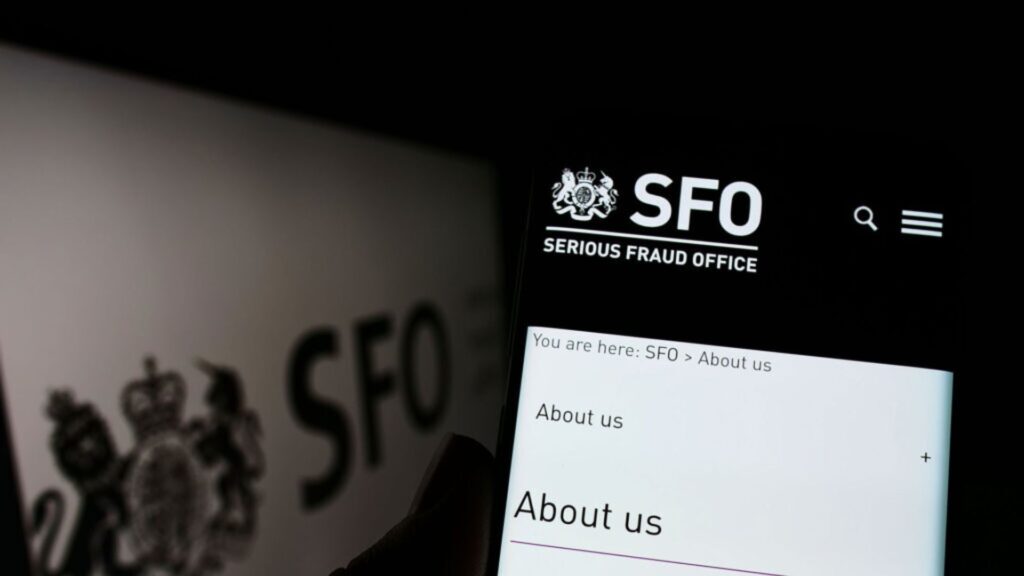by Bill Coffin
Explore the pivotal insights from the UK’s Serious Fraud Office’s latest self-reporting guidance and understand how it aligns with broader regulatory frameworks.
The UK’s Serious Fraud Office has recently issued updated guidance on corporate self-reporting of misconduct, outlining parameters for obtaining a Deferred Prosecution Agreement (DPA) and detailing what constitutes cooperation and non-cooperation. This guidance is designed to help organizations navigate the complex landscape of corporate criminal offending and encourage proactive engagement with regulatory authorities.
The new guidance emphasizes the importance of transparency and cooperation, offering a structured process for companies to communicate with the SFO through a secure online portal. Organizations can expect timely responses from the SFO, which aims to expedite the resolution of self-reported issues and foster a collaborative approach to enforcement.
Interaction with the Economic Crime and Corporate Transparency Act of 2023
The Economic Crime and Corporate Transparency Act (ECCTA), set to take effect in September 2025, introduces a corporate offense for failing to prevent fraud. This legislation will impact a wide range of businesses with exposure to the UK, Northern Ireland, and Wales. Companies must ensure they have reasonable prevention practices in place to comply with the new standards.
The ECCTA’s broad scope means that even internal actions, such as financial misrepresentation to benefit the company, can lead to significant legal consequences. Organizations should prepare for the implementation of the act by conducting thorough risk assessments and establishing protocols for engaging with the SFO in case of potential fraud detection.
Alignment with the Deferred Prosecution Agreements Code of Practice
The new SFO guidance aligns with the Deferred Prosecution Agreements (DPA) Code of Practice from the Crimes and Courts Act of 2013. It outlines a clear process for corporations to follow when seeking a DPA, including secure communication channels and specific timelines for SFO responses.
A significant aspect of the guidance is the presumption of a DPA for organizations that self-report, provided there are no extraordinary circumstances. This presumption aims to encourage companies to disclose misconduct voluntarily, with the assurance of a more favorable and expedited resolution process.
Comparing UK Self-Reporting Standards with US DOJ Standards
There are notable similarities between the self-reporting guidance issued by the UK’s SFO and the US Department of Justice (DOJ). Both emphasize the importance of voluntary disclosure and cooperation, offering incentives such as the presumption of a DPA for self-reporting organizations.
However, the SFO guidance provides more detailed timelines for responses and specific procedures for communication through a secure portal. These additional particulars aim to streamline the self-reporting process and enhance the predictability of outcomes for cooperating companies.
Timing and Strategy for Self-Reporting
Deciding when and how to self-report potential misconduct is critical. The new SFO guidance advises companies to engage with the SFO as soon as they identify a potential issue, rather than waiting for regulatory authorities to discover it independently. This proactive approach can lead to more favorable treatment and reduced penalties.
Organizations should conduct initial internal investigations to ascertain the scope and severity of the issue before deciding to self-report. Collaboration with legal counsel is essential to determine the appropriate timing and strategy for disclosure, ensuring that the company meets the SFO’s expectations for cooperation and transparency.
Additional Links & Resources
- To watch the Ethicast Reacts episode on this topic, click here.
- For the full text of the UK Serious Fraud Office’s new Self-Reporting guidance, click here.
- For the full text of the Deferred Prosecution Agreements Code of Practice, click here.
- For the full text of Failure to Prevent Offences: A Comparative Guide, click here.
 3 Minutes - Read Now
3 Minutes - Read Now 







